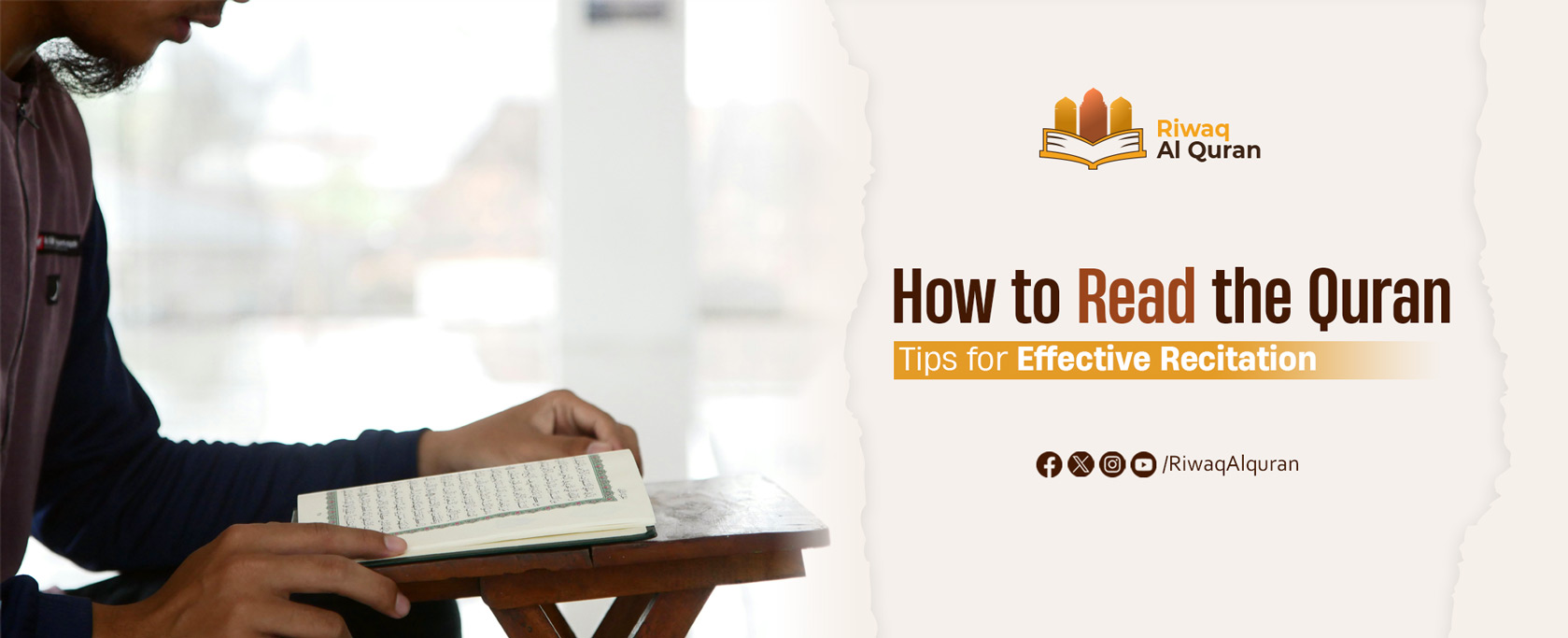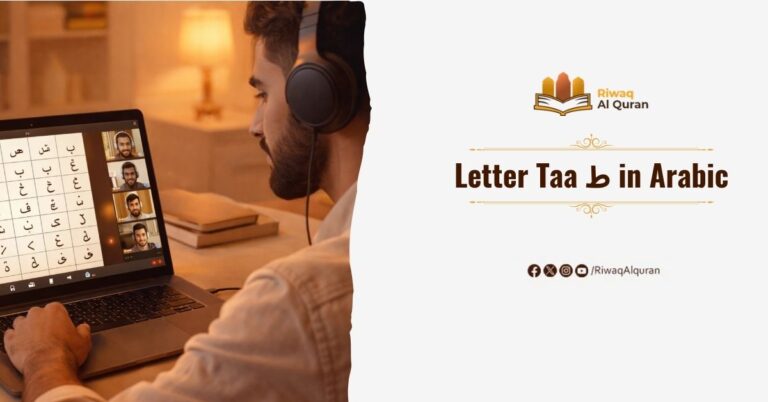Learning how to read the Quran is a deeply rewarding journey that begins with sincerity and continues with structure and persistence. Whether you’re an absolute beginner or seeking fluency, the right guidance, tools, and intentions make all the difference. Starting with a purified intention, understanding the Quran’s format, and seeking Allah’s help are crucial first steps.
From learning Arabic letters through Noorani Qaida to applying Tajweed rules with a qualified teacher, each stage builds your reading confidence. With consistent practice, structured lessons, and proper support, you can learn to read the Quran correctly—even as an adult with no prior knowledge.
Table of Contents
1. Purification of Intention Is the Key to Success
Sincerity is the secret of acceptance for any act of worship in Islam. As the Prophet (PBUH) says, “(The value of) an action depends on the intention behind it. A man will be rewarded only for what he intended.”
Thus, if you purify your intention in your journey to read the Quran, your effort will be accepted regardless of the result. When you know this, you will feel the power to continue the journey and learn to read the Quran for adults. In general, salvation in Islam is mainly through the purification of the heart followed by abiding by the prophet’s way of worship.
2. Understanding The Quran Structure
First, you should have an overview of what you’re going in-depth with. So understanding this arrangement will allow you to navigate the text more effectively.
Generally, the Quran is divided into 114 chapters, known as Surahs, each differing in length. The chapters are further broken into verses known as ayahs.
The Quran, unlike most books, is not organized chronologically; rather, it is organized by chapter length, with longer chapters appearing first and lesser ones appearing later.
3. Seeking Support of Your Creator
As human beings, we are combined with desires that permanently push us to the earth that we are created from. Therefore, if we depend on ourselves, it will be impossible to be elevated to Jannah to nourish our souls.
Indeed, seeking support from Allah the Almighty is necessary in every act of worship. Of utmost importance in this context is learning to read the Quran. The Opening Surah emphasizes the importance of worshipping and seeking help from no one but Allah. We repeat this Ayah at least 17 times a day: “It is You we worship, and it is You we call for help.”
4. Patience and Persistence in Learning Quran Is Highly Recommended
Frankly speaking, no gain without pain; This life is built on exerting effort to gain the result. Learning the Quran is one of the noble goals that are worth exerting efforts for.
Don’t allow anyone to deceive you by saying that you can master Quran recitation in one week or even one month in normal cases if you are not an Arab or you don’t know Arabic. Try to follow the previous tips and for sure you will find noticeable progress.
5. Begin With Noorani Qaida
After you’ve got a fast review of the Quran’s structure, you can move on to developing a solid basis on which to pronounce Quranic terms, and the key element to start with is the Noorani Qaida learning method.
Noorani Qaida is a book that teaches children, beginners, and inexperienced adults how to read the Quran perfectly. If you’re unfamiliar with the Quran or the Arabic language, the method of Noorani Qaida should be your primary guide to reading the Quran in Arabic.
Noorani Qaida is an excellent teacher for recognizing Arabic words and symbols, knowing basic pronunciation rules, and learning the consonants, short vowels, and long vowels.
6. Learn Basic Arabic
Once learning the Noorani Qaida method and practicing with various Quranic terms, now is the time to improve your pronunciation a little bit!
Non-native speakers may be unfamiliar with some of the unusual sounds in Arabic, and we’re referring here to the Tajweed rules or the proper pronunciation of Quranic recitation.
Tajweed regulations dictate how each letter should be pronounced, and knowing these principles assures that you recite the Quran as intended.
How to Read Unique Arabic Sounds Correctly?
To become familiar with Tajweed, you could work on one of these solutions or do all of them together in a more effective way:
- Take lessons from a skilled tutor, preferably in person or online class.
- There are also various lessons online that detail the pronunciation of every letter and sound.
- Repetition and practice are essential to master the proper pronunciation.
7. Follow A Specific Curriculum For Reading the Quran:
Yes, there are several courses meant to teach people how to read the Quran, each customized to a distinct level of ability, from beginners to experienced pupils.
These curricula usually include structured courses that walk you through the basics of Quranic recitation, pronunciation (Tajweed), and, in certain scenarios, memorizing.
Here is a summary of what a typical curriculum for reading the Quran could include:
Beginner Level Curriculum
This level is intended for people who are entirely new to Quran reading or have some knowledge. The primary focus is on learning the Arabic alphabet, basic pronunciation, and simple recitation.
Focus Keys For Beginners In Reading the Quran:
A. Learn the Arabic characteristics
B. Know the basic rules of Tajweed, such as elongation (Madd) and the nasal sound (Ghunna).
C. Begin reading the easy Quran Surahs.
D. Practice the Quranic words.
Intermediate Level Curriculum
At this phase, participants expand their core knowledge by reading longer verses and Surahs, with an emphasis on improving fluency and understanding more sophisticated Tajweed regulations.
Focus Keys For Intermediate In Reading Quran:
A. Master more advanced Tajweed rules, like the Ikhfa and Idgham rules.
B. Read Longer Surahs.
C. Recite and practice reading fluency.
D. Strat reading Quran Tafseer.
Advanced Level Curriculum (Fluency)
This stage is intended for learners who have mastered basic recitation and want to improve their skills before moving on to Quranic memorization or in-depth study of the book.
Focus Keys For Intermediate In Reading Quran:
A. Go in-depth Tafsir study
B. Practice all previous Tajweed regulations with a professional approach.
C. Focus on Quran memorization.
D. Increase the pace of reading the Quran.
E. Learn the different styles of reading the Quran (Qira’at).
8. Gateway to Success
One of the important tips that will help you to learn to read the Quran for adults is to realize the main purpose of the Quran’s revelation. Allah the Almighty has revealed this noble book to the Prophet (PBUH) to guide us to our happiness. Thus, you need to learn how to read this book and how to understand its messages to be able to apply them well.
As Muslims, we believe that this life is a place where we have a test that will decide our ultimate destination in the Hereafter. Thus, if you reflect on that day and the necessity of preparing yourself well for it, it will be easy for you to exert effort to learn to read the Quran.
9. Learn with an Expert Sheikh
Allah SWT sent Angel Jibreel with the revelation to Prophet Muhammad PBUH. Thus, it is highly recommended when learning the book of Allah to listen to it directly from another expert person, then to read before him/her to let them correct your mistakes. Allah the Almighty states in the Quran: “So when We have recited it [through Gabriel], then follow its recitation,” [Al-Qiyamah: 18].
Learning the Quran by yourself doesn’t ensure fluency as there is no one who will help you correct your mistakes and improve your recitation. Yes, listening to audio helps a lot in practicing and enhancing your ability, but there is no guarantee for grasping every point of articulation and other Tajweed rules in a correct manner.
Also, there is a possibility of making a major mistake like changing one vowel and similar stuff and memorizing it that way. Thus, it will be too hard for you to correct it later unless you duplicate your effort.
While self-study is viable, having an instructor can help you learn more effectively. A teacher can correct your pronunciation, explain the meanings of verses, and offer individualized advice based on your progress.
surely, Riwaq Al Quran Academy can design educational sessions to your unique needs, with a trained teacher ready to test your Quran reading level and guide you on this valuable trip!
Read more about How To Finish The Quran In A Month? 30 Days Step By Step Guide
10. Learning Tajweed Rules with a Professional Quran Teacher
As mentioned before, benefits of learning the Quran with an expert tutor are numerous. When it comes to learning Tajweed rules, a professional Quran teacher will show you how to learn to read the Quran in Arabic fluently. To illustrate, when you learn the points of articulation and manners for every letter, you will be able to master the pronunciation of Arabic letters, by practice, even if you are not an Arab.
In addition to that, when you learn about the rules of non-voweled Noon, non-voweled Meem, and lengthening types ‘Mudood,’ this will add a noticeable value to your level of recitation.
Also, when you learn about the signs of pauses and stops in the Quran, your recitation will go with the correct meanings of the Quran; i. e. sometimes if you cut your recitation in an improper position, you can totally change the meaning.
11. Keep Listening and Practicing the Quran Daily
If your level is intermediate in recitation, specify an amount of Ayat according to your capability, listen to them as a whole, then listen to one Ayah or even part of it, then pause and repeat after the Sheikh with your eyes in the Mushaf in all the process. Some websites provide the option of selecting the number of times you need to replay.
Listening is beneficial in acquiring and improving your listening skills in general. Moreover, it adds to your good deeds as listening to the Quran is an act of worship. One of the best Quran reciters is Sheikh Al-Hussari as his recitations are just so serene and clear.
12. Try to Understand the Meaning of Ayat
You will need an interpretation of the meanings of the Quran. You can choose the translation you prefer from the settings. I suggest for you Fadel Soliman, Bridges’ translation or Dr. Mustafa Khattab’s translation. More importantly, keep asking the trusted Quran scholars if you find a meaning that you don’t understand or you are in doubt with.
Thankfully, you can find many Quran lessons for adults for Tafseer and Surahs explanation.
Learning how to read Quran fluently is a noble target that all Muslims should put as a priority. Hence, we collected some golden pieces of advice to help you stay motivated and learn how to read Quran correctly.
Reading the Qur’an while learning the meanings of the verses is an excellent approach to improving your grasp of it. This also helps you link the passages, understand why they were revealed, and remember them better.
13. Begin with small Surahs
A popular question among novices is whether they should read the Quran in order, from beginning to end. The answer is “no.” You can start with any Surah that speaks to you. Beginners are typically advised to begin with small chapters, such as Surah Al-Fatiha or Surah Al-Ikhlas, in order to gain confidence before tackling larger ones.
Starting with shorter Surahs might help you gain confidence. For example, Surahs Al-Fatiha, Al-Ikhlas, and Al-Asr. By beginning with these chapters, you will gradually become acquainted with the flow of the Quran chapters and lay the groundwork for reading greater Surahs later.


14. Utilize Quran Reading Tutorial
This method will be useful to you if you’re looking for a simple way to learn the most utilized Quran reading tips:
A. Read the headers First: Before diving into a section of the Qur’an, take a brief look at any headers or titles, or skim through the entire section that you intend to read.
This provides you with a sense of what the part will be about and prepares your mind for reading.
B. Read in Small chunks: To fully comprehend what you’re reading, it’s essential not to go too long without pausing. Try to read for 30 minutes or less at a time.
Determine how much you can comfortably read in that period, and stick to it. Shorter bursts, such as 5, 10, or 15 minutes, are also acceptable.
C. Finally, Ask Questions When You’re Stuck: If anything does not make sense, don’t be afraid to ask for assistance. You can consult with a friend or family member who is well-versed in the Qur’an, or go to a mosque and ask an imam.
You can also obtain solutions to your questions by conducting an online search or visiting Qurani websites.
15. Enhancing Readings With Texts And Tools
A Quran with transliteration and translation is a very useful tool for beginners. This displays the Arabic text, the pronunciation in Roman characters, and the English translation all at once.
In addition, Audio resources are also important, Listening to a professional reciter will help you understand the rhythm and flow of the lyrics.
On the other hand, Download a Qur’an app to receive reminders and topic readings. the application can support you in keeping up with your daily habit of Qur’an readings by notifying you of reminders and breaking them down into little portions.
16. Put the Right expectations:
There is no specific time for learning the Quran. The matter totally depends on the person’s skills, persistence, and level of previous knowledge and experience. In case of continuity and self-discipline, the beginner with no prior knowledge of Arabic can read basically after three to four months. In some cases, it could be less or more than this.
Some people may need a few months to grow comfortable with reading, while others may require a year or more. The crucial thing is to maintain patience and consistency.
For the level of mastery, the adult needs six to eight months of continuity and self-discipline as well. Enrolling in adult Quran classes and following the instructions of the Quran teacher can help in this case also.
17. Your Target is to Read The Quran Fluently:
Many Muslims ask how to read the Quran fluently, especially those seeking to engage with the text more deeply. Fluency in reading the Quran requires both accurate pronunciation and a smooth, rhythmic recitation.
Here’s a briefed strategy for becoming fluent in Quranic recitation:
1. Master the Tajweed rules and practice the appropriate pronunciation of each Arabic letter in a more advanced manner than the introductory level.
2. Listen to Skilled Reciters to improve your grasp of Quranic recitation’s rhythm, tone, and flow.
3. Imitate the Recitation. This will come by reciting the Qari’s tone and pace. This can help you internalize proper pronunciation and flow.
4. Gradually raise your reading pace; do not rush; start by repeating slowly and accurately, then challenge yourself step by step.
5. Review your memorized verses regularly to retain fluency. Reciting memorized verses in your everyday prayers might also assist in strengthening them.
For more specific instructions and a full tutorial on how to learn to read the Quran easily and fluently, see the following guide to obtain the complete and satisfactory solution you’re seeking:
How to Recite the Quran Fluently? – 18 Fruitful Tips!


Learn Quran, Arabic, And Islamic Studies Online With The Best Native Tutors
Riwaq Al Quran is a comprehensive online platform that offers personalized Quran, Arabic, and Islamic Studies Online classes for individuals of all ages and backgrounds.
Their experienced instructors use a structured curriculum to cover Tajweed, Tafsir, and Memorization, providing easy and effective access to learning the Quran.
The advanced online classes allow for seamless communication and interaction between students and teachers. Join Riwaq Al Quran for a deeper connection with the Quran.
We offer several courses such as:
- Online courses for kids.
- Online Quran classes for kids and adults.
- Online Arabic courses
- Online Ijazah courses
- Online Islamic Studies courses.
Here are a sample of our set of Quran Courses that will be helpful for you:
- Online Tafseer Course: Delve into Quranic meanings with our insightful online Tafseer course.
- Noorani Qaida Online: Learn Quranic basics efficiently through our Noorani Qaida online program.
- Online Quran Recitation Course: Enhance Quranic recitation skills through our expert-led online course.
- Online Tajweed Classes: Master Tajweed rules for beautiful Quranic recitation in online classes.
- Quran Memorization Online Course: Memorize the Quran effectively with our specialized online memorization course.
- Online Qirat Course: Explore diverse Qirat styles with our comprehensive online Qirat course.
- Online Quran Classes for Kids: Nurture a love for the Quran in kids through interactive online classes.
Conclusion
Mastering Quran reading is not about speed—it’s about consistency, understanding, and sincere effort. Begin with small Surahs, use translations and audio tools, and always aim to improve one step at a time.
By committing to daily practice and learning under an expert tutor, you’ll progress steadily toward fluency. Remember, reading the Quran is a spiritual journey—one that transforms your heart, strengthens your faith, and brings you closer to Allah.
Whether you are just starting out or want to improve your current knowledge, these previous steps will help you on your way to learning the Quran.
Remember the rewards of reading the Quran in the first place, and continuously remind yourself that reading the Quran is a lifelong task and that every effort you make to read and comprehend it is a kind of worship blessed by Allah.
So take your time, be patient with yourself, and enjoy the adventure of finding the wisdom and beauty contained in the Quran.


































